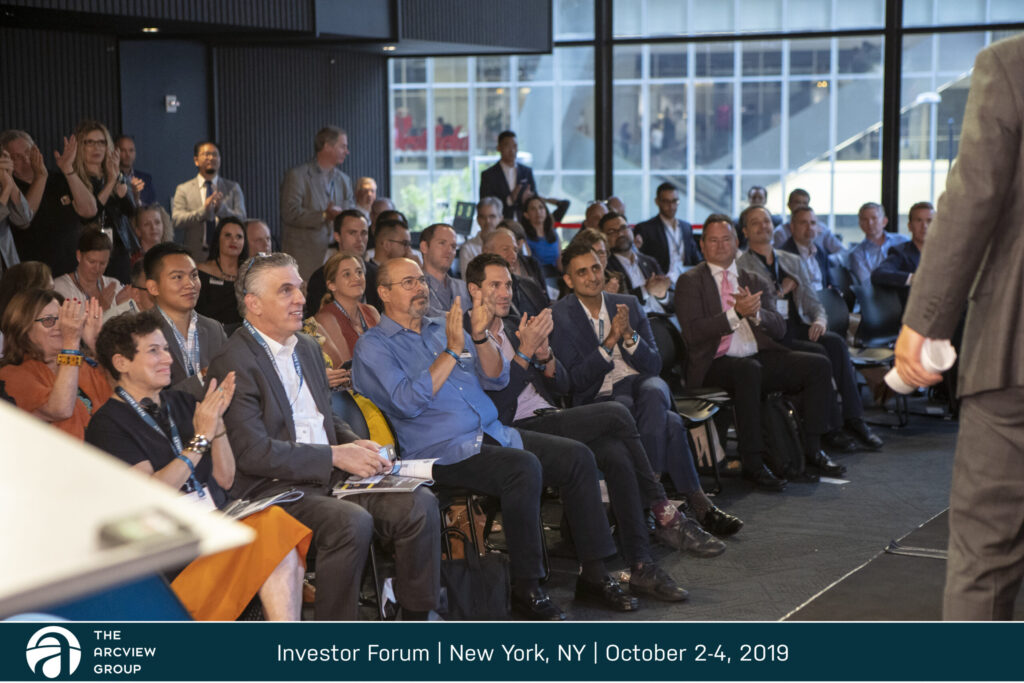How do you convince an investor your new business will not only succeed, but thrive, during a global economic recession?
It’s a horrifying question, one many entrepreneurs are asking themselves this year.
Fortunately, there are programs in place to help startups learn the invaluable language of the investor.
Communicating with high-value venture capitalists is a skill, and like most skills, it can be learned and improved.
Educational opportunities, like the newly debuted Arcview Ignites program, could help shape the future for many startups and entrepreneurs.
Traditionally, the Arcview Group has focused on investor networking events to facilitate partnerships, but recently the brand pivoted to offer more digital opportunities.
The difference with Arcview Ignites, however, is this program isn’t for investors, it’s for entrepreneurs.
Developing a Digital Strategy

With a decade of investor experience and more than 600 members, The Arcview Group is launching their new program to offer participants carefully curated insights into the investor mindset.
CEO Kim Kovacs joined Arcview in January of 2020, and despite the turbulence of the past year, she’s embraced the company’s amplified digital strategy.
“We can actually deliver more information and insights, albeit differently than you can at a live event. I actually feel it’s more personal,” Kovacs shared.
During a recent digital event she was able to speak with Isaiah Thomas, a 12-time NBA All-Star who played his entire professional career for the Detroit Pistons.
She confided that as a Detroit-native herself, she had a bit of a girlhood crush on Thomas.
This virtual face-to-face provided more interaction than a typical in-person event would have allowed.
“I had a whole hour with him. I got a chance to get personal with him. I got the chance to have a conversation with him, even though it was online. To me, that’s the benefit of doing these things on platforms — being able to get that level of intimacy, where at a big event, maybe you get to 10% of the people who are there… here you can engage with everybody that’s on,” she explained.
Creating a Platform for Discovery
As The Arcview Group is offering more webinars and virtual experiences, they’re hoping to connect in a deeper way with entrepreneurs.
Kovacs noted: “Companies now need us more than ever… We know what investors are thinking. We talk with them all day. We know what they’re looking for and we know what they’re not looking for, so we have an inside track and a playbook for success that most organizations don’t. Therefore, we’re able to guide entrepreneurs and those starting out.”
For many start ups, simply being noticed by investors is an advantage.
A listing in an innovator directory, for example, could help bring a brand’s name to an investor’s portfolio.
Arcview calls this their “Discover Platform.”
Much like AngelList or Chronic Startups, this program offers companies a simple directory where they can highlight their brand and outline their goals, leadership, and funding.
Refining to Pitch Perfection

If a company wants more visibility, Arcview Ignites offers a “Summaries” program, where startups create a video pitch to share on the Arcview app.
It’s a bit like a dating app, where investors can swipe through company after company until finding their ideal match.
If a founder is just starting out and isn’t sure how to convince an investor or craft a compelling video pitch, Arcview Ignites offers a “how-to” series.
“Launch Pack,” as they’re calling it, helps newcomers refine their approach.
Once the entrepreneur has their pitch ready to go, experts coach them through their pitch until it’s refined and ready to present to Arcview’s investor group.
The investor group provides feedback so founders can tweak their pitch or conduct additional research.
Learn to Tease to Please
Kovacs also shared some advice from launching her own businesses: “It’s important to have the right information, presented at the right time.
Your initial contact with an investor should be to get them interested enough to take that next phone call. You don’t want to give them everything they need.”
She added, “It’s not a sales pitch. You’re not selling your product. What you’re doing is setting up that first meeting to get to the second and third meeting. And don’t expect that they’re going to write a check in that first meeting. That’s not ever going to happen.”
Know Your Talents

Echoing the sentiments of many successful entrepreneurs, Kovacs emphasizes the importance of knowing what one is best at, “Why you? Why now?”
During initial meetings, investors are trying to understand founders and entrepreneurs as company leaders as much as they’re trying to understand the value of the company’s IP.
“We advise entrepreneurs to include things like your team, and not just the team you have right now, but how you’re thinking about your team. Who are you missing that you’ll need to bring in once funding occurs?” She added, “As an investor, we want to see: how you think, how you strategize, how you’re going to bring a product to market, how you’re going to evolve, and how you’re going to pivot. All these things need to be clearly communicated in just 10 minutes.”
What if you’re a late-stage startup?
Kovacs advises to be aware of your financials and metrics.
Make sure you’re asking the right questions.
What about unit economics? What’s the lifetime value?
Kovacs says if you’re at this stage of the game, it’s important to have the data investors want to see: “We want to know what a company would be measuring on a day to day or week by week or month by month basis to gauge success. You need to be intimately familiar with your metrics and be able to state the facts by memory.”
Understand the Competition
If one’s company is poised to enter a market, who are the other players to watch?
It’s more than knowing the enemy, it’s knowing there’s an audience.
As Kovacs noted, “To me, if there’s no competitor in the market, then I’m going to question if there’s really a market.”
When Kovacs started her first financial technology company, the biggest competitor at the time was Excel.
She quickly realized they would need to drive customers away from the familiarity of Excel and into the loving arms of automated fintech.
However, she cautions against comparing one’s company to an entity overtly dominating a space.
She warns, “Don’t tell me your competitor is Google if you’re just getting started. We hear statements like this all the time, ‘Well, our competitor is Amazon. We’re building the next Amazon of cannabis.’ No, because if I can call up anybody at Amazon and they’ve never heard of you, then you were not a competitor of Amazon.”
Kovacs reminds startups to be aware of where they are now, even if they have lofty ambitions for the future.
“Amazon has spent billions of dollars to build Amazon. If you want to be a competitor of Amazon, then you’re going to have to spend something similar. But, you could be a threat or an opportunity for Amazon.” She added, “If they’re not covering a specific thing or they’re not doing something a certain way, then there could be an opportunity. Large companies like Amazon buy smaller companies and technologies all the time. So, I would love to see how you would fit into Amazon as opposed to trying to compete against them.”
Collaboration > Domination

Partnerships are another, often neglected, avenue for growth and investment.
If there’s an area where a partner might add knowledge, capital, or clout, it’s worth exploring a collaboration.
For instance, Arcview recently announced their partnership with Women Grow.
The goal is to expand their Women Investor Network by leveraging the partnership to reach more women in the cannabis space.
“As opposed to trying to compete against them, or pursuing an avenue where we’re both doing the same program, let’s do what we do well. Let’s focus on the investor and helping companies, and they can help and work on the other parts of the industry that they do well,” Kovacs shared.
Stay Calm and Pitch On
Kovacs has launched six successful businesses during her career as an entrepreneur, and she said there was one key element that kept resurfacing:
Don’t lie to the investors. If you don’t know something, admit that you don’t know.
“When I first started fundraising, I felt like I had to have an answer to everything… I was reaching to try to answer the question in the right way, as opposed to taking a nice pause and saying something to the tune of, ‘That is a really important question. I would like to get back to you with a very succinct answer on that, as I don’t have all the information I think is important to answer that question right now. So, I want to get back to you on that. Is that okay?’ As opposed to bull****ing your way through an answer, which they’re going to know anyway.”
Most importantly, Kovacs encourages perceptiveness and flexibility.
Read your audience and adapt the presentation based on who’s in the room.
Ultimately, this is your opportunity to own the floor and make an impact on investors.
Kovacs concluded, “During a pitch, you get to take the audience on a journey. This is your time to share your expertise, show your passion, and make connections.”
Whether those connections help grow your business depends largely on you.
Author
-
Ebby Stone is a freelance writer specializing in cannabis, with a focus on the innovators and businesses shaping the industry.







